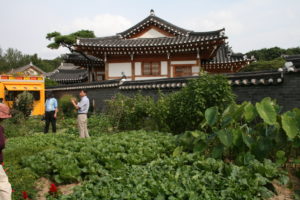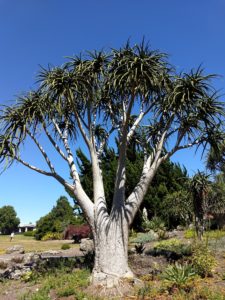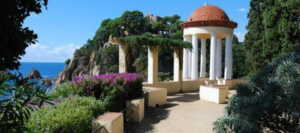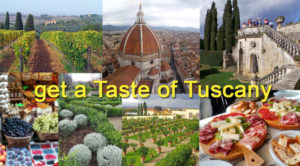Leading Extension Gardener International Travel Study Programs
go.ncsu.edu/readext?879150
en Español / em Português
El inglés es el idioma de control de esta página. En la medida en que haya algún conflicto entre la traducción al inglés y la traducción, el inglés prevalece.
Al hacer clic en el enlace de traducción se activa un servicio de traducción gratuito para convertir la página al español. Al igual que con cualquier traducción por Internet, la conversión no es sensible al contexto y puede que no traduzca el texto en su significado original. NC State Extension no garantiza la exactitud del texto traducido. Por favor, tenga en cuenta que algunas aplicaciones y/o servicios pueden no funcionar como se espera cuando se traducen.
Português
Inglês é o idioma de controle desta página. Na medida que haja algum conflito entre o texto original em Inglês e a tradução, o Inglês prevalece.
Ao clicar no link de tradução, um serviço gratuito de tradução será ativado para converter a página para o Português. Como em qualquer tradução pela internet, a conversão não é sensivel ao contexto e pode não ocorrer a tradução para o significado orginal. O serviço de Extensão da Carolina do Norte (NC State Extension) não garante a exatidão do texto traduzido. Por favor, observe que algumas funções ou serviços podem não funcionar como esperado após a tradução.
English
English is the controlling language of this page. To the extent there is any conflict between the English text and the translation, English controls.
Clicking on the translation link activates a free translation service to convert the page to Spanish. As with any Internet translation, the conversion is not context-sensitive and may not translate the text to its original meaning. NC State Extension does not guarantee the accuracy of the translated text. Please note that some applications and/or services may not function as expected when translated.
Collapse ▲Before:
-

South Korea
Review What to Know Before You Go.
- Get/renew your passport and any required vaccines. Your passport must be valid for at least six months after the last day of the tour.
- Register for NC State University Full Tunnel VPN to allow access to your NC State University Gmail account and other services that may be restricted in other countries.
- Include in Your Travel Authorization: (the only expenses that will be covered for you by the state program are your registration fee & your flight)
-
- Any meals or other expenses you have permission to charge to an NC state account.
- The purchase of a local SIM card for your cell phone so you can use data and make local calls (to the in-country guide, to a site to let them know you are running late, to get a cab). Ask about using your Pcard to purchase a SIM card. Your cell phone will need to be unlocked before using the SIM card.
-
- Review the recommended reading. Learn about the country you are visiting – flora, fauna, culture. (you are not expected to become an expert)
- Create a folder on the Shared-Drive for guides and participants to share images. The folder should be within the folder set up for your trip in the “EG-Travel” folder in the Consumer Horticulture shared drive. Right-click the folder name and select “share” at the bottom of the window under “General Access.” Click the down arrow to the left of the current option and select “Anyone with the link.” In the right column, select “Contributor.” In the bottom left corner, click “Copy link.” That is the link to share with the participants. It will allow them to add images.
- Consider creating a country-specific portal page, such as Costa Rica. After the orientation, upload the slide deck to the portal and link from the page so participants can review it.
- Download the app “Whatsapp” and learn how to use it. This will allow you to communicate with the participants via wi-fi at no charge. Be sure each of the participants download the App before departure. Exchange usernames with all participants. Test and troubleshoot communications ahead of time. You can create a group with all the travelers and NC State guides. Then, you can send a message to the whole group or specific individuals. Add the in-country guide and the bus driver when you are on site. This is helpful at a large destination, e.g., “See you on the bus at 4:00 p.m.; it is in the parking lot to the left and just down the hill from the visitors’ entrance.”
Help promote the trip and recruit travelers. See marketing strategies and marketing resources.
-
-
- Send an announcement email to the NCEMG and Consumer Hort agents’ email lists. Ask them to share the announcement with their volunteers.
- Write a promo for the NCEMG newsletter.
- Add a post to the EG Portal.
- Host a marketing/promotional/informational Q&A on Zoom announcing the trip (invite Lucy and previous guides to join.
-
- Connect with the local guide to confirm the time for dinner on the first night and when the bus will depart on the first day. Share this information with travelers.
- Get the cell phone number and email of the professional guide, the bus driver, and any participants who get SIM cards for local calling.
- Plan several icebreakers for the first day on the bus.
- Keep copies of participant passports, emergency contact information, medical conditions, and travel plans (arrival and departure times, flight number, and airlines) in a notebook that stays with you on the bus, at the hotel, and during day trips.The tour company manages all emergencies during the trip.
Host online orientation for travelers (after registration closes).
Bring:
-

New Zealand
Portable chargers/power banks and phone chords so you and participants can recharge on the bus between destinations. Extra batteries and SD cards for your camera.
- Things participants may have forgotten (moleskin for sore feet, medicines (aspirin, ibuprofen, anti-diarrhea, and motion sickness), wrist bands and ginger chews to avoid being car sick, basic first aid (bandaids, antibiotic ointment), ponchos, bug repellent, and sunscreen. (see What to Pack)
- Thank you cards for the bus driver, tour guides, and hosts at tour sites. Have participants sign.
- Name Tags for those who forget their badges. Name Tags for participants are helpful for the group, especially during the first few days.
- NC State swag to give to the guide, the driver, and the guides and hosts along the way. Contact Julie Hayworth-Perman <
jhaywor@ncsu.edu> to request hats, pens, shirts, etc.
During
-

England
Take many pictures of flora, fauna, culture, destinations, and happy travelers in action; post them on NCEMG Facebook and share them with CALS and the CES social media and marketing team.
- Encourage travelers to post on social media on their personal, county, and state EMG sites.
- Encourage travelers to share their images via the Google Drive folder
- Serve as Host, Camp Counselor, Guide
- Keep count of attendees, and make sure no one is left behind.
- Take pictures of the room list and send it to everyone after check-in
- Every night at dinner or on the bus at the end of the day. Announce the schedule for the next day, time for breakfast, when to meet the bus, etc.
- You will be traveling with a variety of people with different experience levels, backgrounds, and viewpoints – be prepared to facilitate, counsel, arbitrate, and negotiate as needed. Remember, you are in a leadership role, and part of your responsibility is to foster group harmony.
- Remember to get to know everyone – sit with different groups at meals and spend time making sure everyone is included.
- Be present and accessible to travelers during tour/meals; save Facebook for later (after dinner or when you return)
- Be prepared for colds, stomach viruses, and minor illnesses (bring extra supplies)
- If you are asked how your expenses are covered, let travelers know tour guide expenses are built into the tour registration fees.
- Sometimes, due to the group size, not everyone will stay in the same block of rooms/location, possibly even in different hotels.
- Download Google Maps for use without an internet connection; this can come in handy for folks on ‘free days’ as they navigate independently. It does not give walking directions!
- Send e-mail reminders every other night to remind travelers of the upcoming day(s) and what to expect.
- Be prepared for traffic – use the time for participants to introduce themselves, provide information on upcoming destinations, and consider stopping for a few minutes at a market so folks can get out and walk and see local produce.
- On the last day of the trip, pass a hat (once for the driver & once for the guide) and give them the “Thank You” cards.
After:
-

Spain
Survey participants and summarize the results, including your suggestions on improving the itinerary. Share with Lucy.
- Work with participants to host a webinar sharing your adventures with Master Gardener volunteers across the state.
- Assist in promoting future trips.
General tips:

Italy
- Don’t overschedule before the tour. Come well-rested and ready for an adventure.
- Do not plan to work during the trip. There will not be time to keep up with your email or work on projects. Stay focused on the trip and the travelers.
- Don’t overschedule the final day of the tour – people need time to pack.
- Don’t overschedule yourself when you return! Plan a couple of vacation days or professional scheduling time. You’ll need time to adjust to the time change and catch up on personal stuff. Also, keep your work schedule light for a week or two after you return to allow time to follow up on the trip and catch up with what happened while you were gone.


